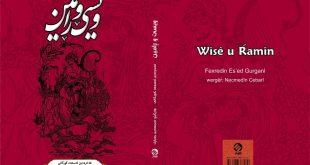
The Backgrounds of Emergence, Transition and Political Structures of Society for the revival of kurdistan (jiyanaway kurdistan)

Dr.Amir Sajjadi
Following the military occupation of Iran by the Allied Powers, jk society -Jiyanaway Kurdistan – (society for the Revival of Kurdistan) was the first political party established among the classic and modern classes of petit bourgeois in Mahabad in Kurdistan. I am going to discuss following questions through historical resources and new researches by a descriptive-analytic method:
۱٫ How did social structures and new history of Kurdistan play a role in emergence of jk society?
۲٫ How did paradoxes in the nationalism discourse of the modern absolute state of Pahlavi lead to the creation of jk ideology?
The establishment of jk among traditionalists and modernists was the result of changes in forms of social powers in Kurdistan. These changes were the consequences of the modernization policies of Pahlavi in the renovation of social structure and the project of cultural assimilation in this epoch. These policies caused a new type of collectivism based on ethnic/ lingual minorities. In other words the modernization of Pahlavi dynasty not only paved the way to the emergence of Kurdish urban powers but also weakened the remaining powers of the classic order and edged them out. The elite and leaders of this class influenced by the nationalism discourse of the modern absolute state of Pahlavi began to present a new definition for ethnic identity. Therefore the paradoxes in the nationalism discourse of the modern absolute state led to the advent of the nationalism discourse of jk among the Kurds.
Key Words: Jk Party, Modern Absolute State Of Pahlavi, Ethnic Nationalism, Kurdistan In Iran
 خانە کتاب كُردی
خانە کتاب كُردی



